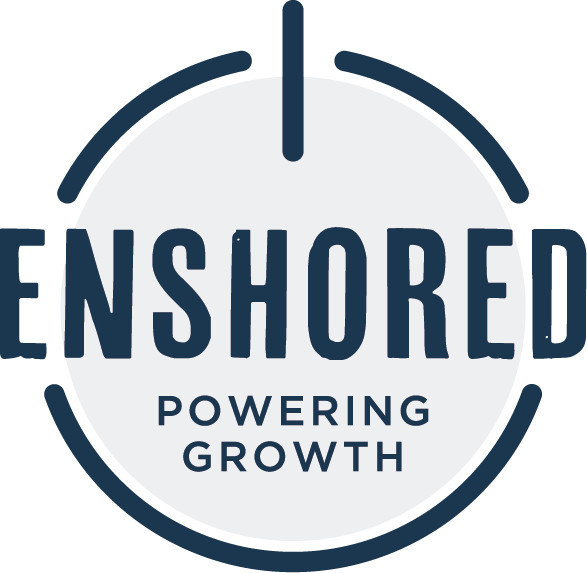Taking too long? Close loading screen.


There you are, burning the midnight oil again – just trying to keep your startup afloat for another day, or month, or fundraising cycle.
Your to-do list is endless — customer support tickets are piling up, your books are a mess, and you haven’t had time to work on brand or product development in weeks.
Sound familiar? If you’re nodding your head, it might be time to consider business process outsourcing (BPO) to lighten the load, clear the queue, and get back to the work you initially set out to do.
And you wouldn’t be alone in pursuing that path.
According to a recent study, 37% of small businesses now actively outsource at least one business process to a BPO partner in order to successfully position themselves to scale.
But… What is BPO, anyway? And can it help your startup grow?
Business process outsourcing, or BPO, is the practice of contracting specific business functions or processes to a third-party service provider. In simpler terms, it’s about giving away certain tasks or operations to experts outside your company so you can focus on what you do best.
So what does BPO look like for start-ups and scale-ups? For young, growing companies, BPO is a secret weapon that can help you leverage your expertise, scale fast, and get ahead of the competition.
And if you haven’t thought about it before, you’re in the minority. Almost 3 in 4 tech startups say they’ll outsource business processes. (That’s a lot of founders who “get” BPO.)
Here’s why more and more startups are opting for business process outsourcing.
A BPO company like Enshored can handle various business functions, from customer service and content moderation to “back-office” and internal business functions like accounting, data entry, and tech support. A BPO provider becomes an extension of your team, working behind the scenes to keep your business running while you focus on growth and innovation.
Business process outsourcing might seem like traditional outsourcing, but it’s different. While you might think of outsourcing as hiring a freelancer for a one-off project, BPO is more comprehensive and ongoing. A BPO service provider takes on entire business processes, often integrating deeply with your business operations.
For startups, this is a game-changer. If you’ve been asking, “What is BPO,” imagine having a team of experts handle your customer support, manage your books, or run your IT infrastructure — all without the overhead of full-time employees. That’s the power of working with a BPO.
If you’re still undecided about business process outsourcing for your startup, consider this mind-blowing statistic: companies that outsource see 50% more yearly revenue growth than those that don’t. That’s a big advantage in the competitive startup landscape.
Let’s get into the key benefits that make tapping into the BPO industry a powerful tool for scaling startups.
1. Cost Reduction and Financial Flexibility
One of the biggest benefits of using BPO vendors is the potential to reduce costs. By outsourcing certain business functions, you can avoid the costs of hiring full-time employees — salaries, benefits, office space, and equipment. This is especially good for startups on a tight budget.
But the financial benefits go beyond saving costs. BPO gives you the financial flexibility to scale up or down quickly in response to market demands or seasonal fluctuations, which is a big competitive advantage for startups like yours.
2. Access to Specialized Skills
BPO companies have teams of experts in various fields, from customer service professionals to IT specialists. Working with a BPO service provider gives you access to these specialized skills without recruiting, training, and retaining talent in-house. This is especially good for startups that need specific skills but can’t justify a full-time hire.
3. Increased Efficiency and Productivity
BPO providers are experts in the business processes they manage. They have honed their methods, use the latest tools, and often apply best practices that can greatly improve efficiency. By outsourcing non-core functions to specialists, you can often see a big increase in productivity and output quality.
4. Focus on Core Business
One of the biggest benefits of BPO for startups is the ability to focus on core business activities. By offloading time-consuming tasks to a BPO company, you and your team can focus on the parts of your business that drive growth — product development, strategic planning, or building key partnerships.
5. Scalability and Flexibility
Startups grow fast, and that can put pressure on internal resources. BPO providers offer scalable solutions that can grow with your business. Whether you need to handle more customer support tickets or process more transactions, a good BPO partner can scale up quickly to meet your needs.
6. Time-to-Market
We don’t have to tell you that being first to market can mean the difference between success and failure. By using BPO services, you can speed up various business processes, from product development to customer onboarding. This can help you launch new products or enter new markets faster than competitors who are trying to do everything in-house.
7. Risk Management
BPO providers have robust systems and processes in place to ensure business continuity and compliance. By working with a reputable BPO company like Enshored, you can reduce risks associated with data security, regulatory compliance, and business interruptions.
These benefits combine to form a growth engine. By outsourcing certain business functions strategically, your business can operate more efficiently, respond faster to market opportunities, and scale faster than you could on your own.
Did you know that startups are 20% more likely to survive for at least five years compared to startups that do everything in-house? This stat shows the long-term value of BPO for your startup, but it can still help move the discussion out of the “academic” and into the real world.
Case Study: HealthTech Company
A HealthTech startup was growing and needed to deliver a voice-driven customer experience to an older demographic and improve customer acquisition and retention. They also needed to respond to queries in real time but didn’t have clarity on ticket volume.
We provided a fractional team through our Enshored Grow service so they could scale without big financial investment.
The results were amazing: first response time was reduced from 7.5 hours to 18 minutes, and ticket handling capacity increased by over 260%. Best of all, customer satisfaction was 4.8 out of 5.
Case Study: SaaS Startup
A SaaS startup was overwhelmed with millions of support tickets, far more than their 6 full-time employees could handle. This led to longer response times and started to erode customer trust — a dangerous situation for any startup, but especially one in B2B.
We helped them add 16 hours of support, trained them on global tax policies and compliance regulations (key to their service offering), and worked on the overall buyer support function.
As a result, they hit their response time targets 60% of the time, maintained a 90%+ customer satisfaction score, and added 2.5x more support agents in 30 days.
These real examples show the power of business process outsourcing for startups. By working with Enshored, these startups were able to scale fast, improve customer satisfaction, and focus on their core competencies.
The result? Faster growth, happier customers, and a stronger competitive position.
If you’ve been asking, “what is BPO,” you should first assess if your startup is ready. Before you jump into a BPO partnership, use this checklist to check your readiness:
1. Have you identified processes that are time-consuming but not core to your business, like tech support?
2. Are you struggling to meet customer demands with your current team?
3. Do you need skills that are hard or expensive to hire full-time?
Is your team spending too much time on mundane tasks that a BPO service provider can handle?
5. Are you expanding into new markets or time zones?
6. Do you need to reduce costs to invest in growth?
7. Are you ready to bring in external teams from a BPO company into your workflow?
8. Have you defined your goals and KPIs for BPO?
9. Do you have the infrastructure to support remote working with BPO providers?
10. Are you willing to invest time in managing the BPO relationship initially?
If you answered yes to most of these questions, your startup is probably ready to move beyond asking, “what is BPO?” and start considering outsourcing strategies. Even if you have some No’s, however, this checklist will help you prepare for a future BPO project.
Now that you’ve decided your startup is ready for BPO, here’s a guide to get you started:
1. Identify Processes to Outsource
Review your business functions and see which non-core processes can be outsourced. Common areas are customer service, data entry, back-office, or call centers.
2. Set Clear Goals and KPIs
Define what you want to achieve with BPO. Is it cost savings, improved efficiency, or faster scaling? Set specific, measurable KPIs to track success.
3. Request Proposals and Compare
Get detailed proposals from your top choices. Compare their services, pricing, and how well they match your business objectives.
4. Start with a Pilot
Before committing to a long-term contract, start with a small pilot. This will allow you to test the waters and see how your BPO provider performs.
5. Brief Your Team
Let your team know you will be using BPO. Train them on how to work with the outsourced team.
6. Monitor and Refine
Review the performance of your BPO partner against your KPIs regularly. Be prepared to provide feedback and work together on improvements.
Remember, BPO is a partnership. Invest time in building a good relationship with your BPO provider and you’ll get the benefits of efficiency, cost savings and scalability.
Choosing the right business process outsourcing (BPO) partner is key to your startup’s success. The right BPO provider will accelerate your growth, the wrong one will slow you down.
Here’s how:
Expertise and Industry Awareness
Look for BPO companies with experience in your industry. They should understand your business processes and the challenges of your sector. Ask potential partners about their experience with similar startups and request case studies or references.
Scalability and Agility
As a startup, your needs can change fast. Make sure your BPO partner can scale up or down quickly to match your growth. Talk to them about their capacity to handle sudden spikes in workload or add new services as your startup evolves.
Technology and Infrastructure
Your BPO company should have robust technological infrastructure in place. This includes up-to-date hardware, software and cybersecurity. Ask about their data backup procedures, disaster recovery plans and compliance with relevant data protection regulations.
Quality Assurance
Ask about the BPO provider’s quality control processes. They should have clear KPIs and regular reporting. Ask how they monitor and maintain service quality as they scale to meet your growing needs.
Cultural Fit
A BPO partner like Enshored will be part of your team, so cultural alignment is key. Evaluate their communication style, work ethic and values. For offshore or nearshore providers, assess their ability to bridge any cultural or language gaps.
Pricing Structure
While cost savings are important don’t make decisions based on price alone. Look for a BPO service provider with a transparent pricing structure. Know what’s included in their base price and what will incur extra charges.
Security and Compliance
Make sure your BPO company has robust security measures in place to protect your data and comply with relevant regulations. This is especially important if you’re in a regulated industry or handling customer data.
Red Flags to Look Out For:
Remember, the right BPO partner should feel like part of your own team — aligned to your goals and committed to your startup’s success. Don’t consider outsourcing if you see any of these red flags.
The traditional view of BPO as a cost-cutting measure is fast disappearing. Today’s startups are using BPO as a strategic tool for innovation, market expansion, and competitive advantage.
The message for founders and startup leaders is clear: BPO is no longer just about cost savings or overflow work. It’s about extending your team’s capabilities, accelerating innovation, and creating a more scalable and flexible business. The startups that will thrive in the coming years will be those that can integrate BPO into their core strategy and use it as a catalyst for growth and innovation.
As you plan your startup’s growth ask yourself: How can BPO support your current operations but also enhance your ability to innovate and scale? What outsourcing services will give you an edge in your industry? How can you use BPO to react to market changes or shape your market?
The future of BPO for startups is looking bright, full of possibilities for those who can use it strategically. As the BPO industry evolves, it will enable a new generation of startups to scale faster, innovate quicker, and compete globally. Will yours be one of them?
Anticipating growth?
Access the tools, tech & team you need to scale globally.

Serious about scaling?
One call is all it takes to know if we’re a fit.
© 2024 Enshored · Privacy · GDPR · California · Cookies · Marketing by Klicker